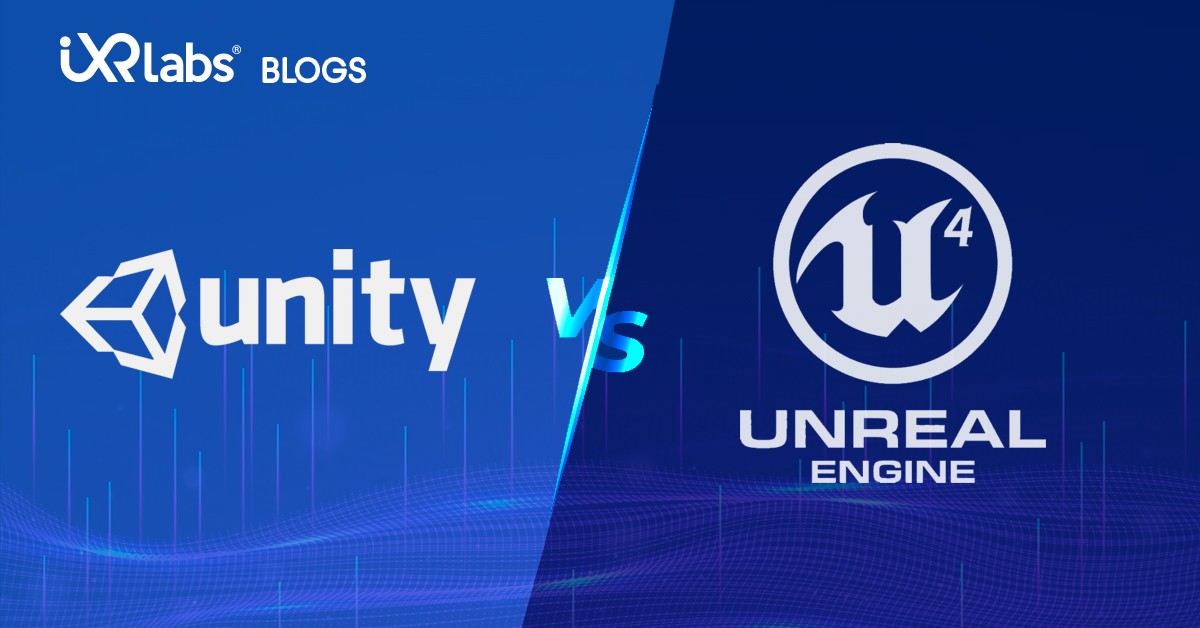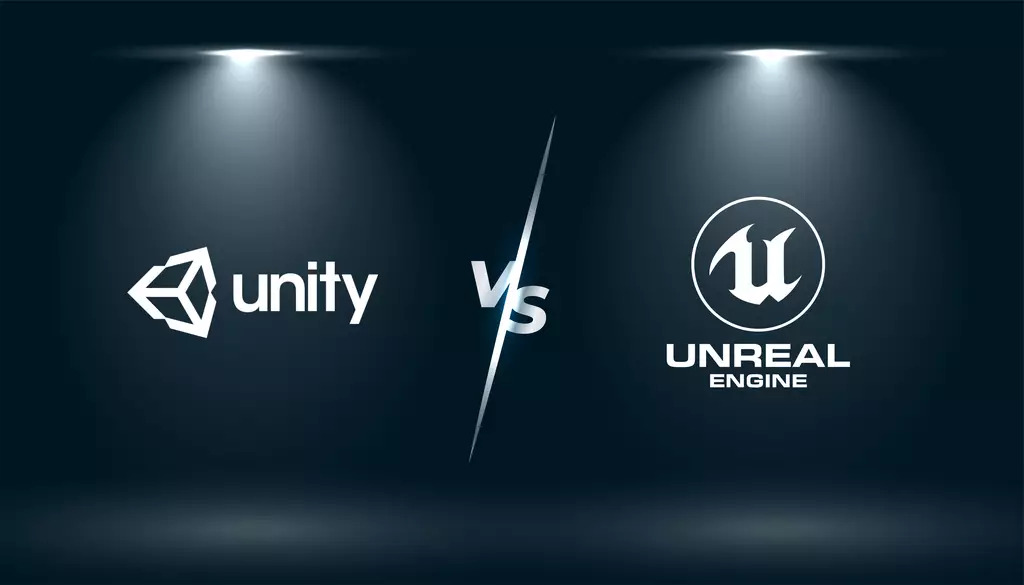Unity Vs Unreal | Which is better for Developers?

Are you ready to embark on an exciting journey of game development?
Creating a game is a thrilling experience that requires a lot of creativity and effort. However, when it comes to game development, choosing the right game engine is critical. Unity and Unreal are two of the most popular game engines that developers often consider.
But which one should you choose?
While both Unity and Unreal are powerful tools, they have significant differences that developers must consider before making a decision. In this blog, we'll dive into the differences between Unity and Unreal to help you decide which game engine is the best fit for your game development needs. From the ease of use to graphics and performance, we'll explore the key factors that make Unity and Unreal unique, so you can make an informed decision and bring your game to life.
So, let's get started and discover which game engine reigns supreme!
What is Unity Game Engine?
Unity is a popular game engine that is widely used by developers around the world. It is a cross-platform engine that supports multiple platforms, including Windows, macOS, Linux, Android, iOS, and more. Unity provides a powerful editor that allows developers to create 2D and 3D games, and it also includes a range of tools and features for game development.
One of the key benefits of Unity is its ease of use. Unity has a user-friendly interface that makes it easy for developers to create games without any programming experience. Additionally, Unity has a vast community of developers, which means that there are plenty of resources and tutorials available for beginners.
What is Unreal Game Engine?
Unreal is a game engine developed by Epic Games. It is a powerful engine that has been used to create many popular games, including Fortnite, Gears of War, and Bioshock. Like Unity, Unreal is a cross-platform engine that supports multiple platforms, including Windows, macOS, Linux, Android, and iOS.
One of the key benefits of Unreal is its graphical capabilities. Unreal has a powerful rendering engine that allows developers to create stunning visuals in their games. Additionally, Unreal provides a range of tools and features for game development, including a powerful editor and a range of built-in assets.
Unity vs Unreal: Key Differences
Now that we have an understanding of Unity and Unreal, let's take a closer look at the key differences between the two game engines.
Ease of Use
As mentioned earlier, Unity is known for its ease of use. Its user-friendly interface makes it easy for developers to create games without any programming experience. Additionally, Unity has a vast community of developers, which means that there are plenty of resources and tutorials available for beginners.
On the other hand, Unreal can be more challenging for beginners to use. While it does have a user-friendly interface, it has a steeper learning curve than Unity. Additionally, Unreal's community is not as large as Unity's, which means that there are fewer resources and tutorials available for beginners.
Graphics
When it comes to graphics, Unreal is known for its powerful rendering engine. Unreal provides developers with a range of tools and features for creating stunning visuals in their games. Additionally, Unreal has built-in assets that make it easy for developers to create high-quality graphics without any additional work.
While Unity's graphics capabilities are not as powerful as Unreal's, Unity still provides developers with a range of tools and features for creating high-quality visuals. Additionally, Unity has a range of built-in assets that make it easy for developers to create visually stunning games.
Performance
When it comes to performance, Unreal is known for its ability to handle large and complex games. Unreal has a powerful engine that allows developers to create games with large open worlds and complex mechanics. Additionally, Unreal's rendering engine allows for high frame rates and smooth gameplay.
While Unity's performance is not as powerful as Unreal's, Unity is still capable of handling a range of game types. Additionally, Unity has a range of tools and features that allow developers to optimise their games for better performance.
Price
Unity and Unreal have different pricing models. Unity is available for free, but developers must pay for additional features and support. Additionally, Unity takes a percentage of revenue from games that make over $100,000.
Unreal, on the other hand, is available for free to use, but developers must pay a 5% royalty fee on gross revenue after the first $1 million. This means that if your game makes $2 million, you will need to pay Epic Games $50,000 in royalties.
While the pricing models for Unity and Unreal are different, both engines provide developers with a range of tools and features that are available for free. Additionally, both engines offer paid features and support that can help developers create high-quality games.
Community Support
Unity has a vast community of developers, which means that there are plenty of resources and tutorials available for beginners. Additionally, Unity has an asset store that provides developers with a range of assets, tools, and plugins that can help them create better games.
Unreal's community is not as large as Unity's, but it still provides developers with a range of resources and tutorials. Additionally, Unreal has a marketplace that provides developers with a range of assets, tools, and plugins that can help them create better games.
Which Game Engine Should You Choose?
When it comes to choosing a game engine, there is no one-size-fits-all solution. Both Unity and Unreal are powerful engines that have their strengths and weaknesses.
If you are a beginner or a small team, Unity may be the better choice for you. Unity's ease of use and vast community make it an ideal choice for beginners who want to create games without any programming experience. Additionally, Unity's pricing model is more flexible, which makes it easier for small teams to get started.
If you are an experienced developer or a large team, Unreal may be the better choice for you. Unreal's powerful rendering engine and performance capabilities make it an ideal choice for developers who want to create large and complex games. Additionally, Unreal's pricing model is more favourable for large teams that have the resources to pay royalties.
Conclusion
Choosing between Unity and Unreal can be a difficult decision. Both engines have their strengths and weaknesses, and the choice ultimately depends on your specific needs and preferences. Whether you choose Unity or Unreal, both engines provide developers with a range of tools and features that can help them create high-quality games.





